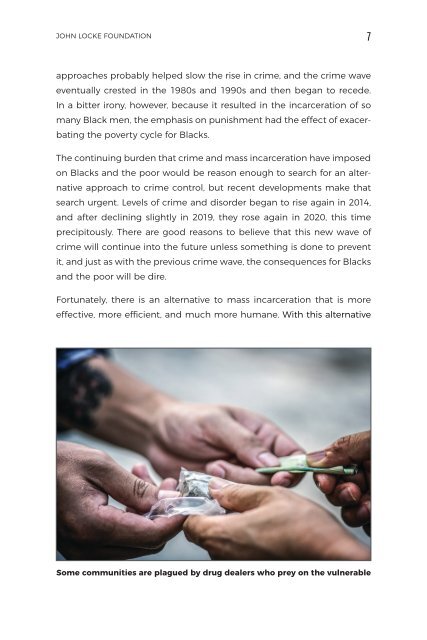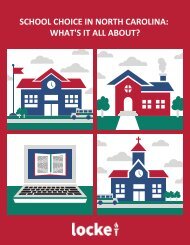Keeping the Peace Through Intensive Community Policing
As crime soars and the breakdown of public order takes its toll on our country, analysis from the John Locke Foundation signals it’s time to adopt a different approach to crime control, one that shifts the focus further upstream, looking at prevention models, rather than exclusively on punitive measures. In this July 2021 report, John Locke Foundation researcher and author Jon Guze explains that the current focus of catching, convicting, and punishing perpetrators after crimes have been committed has come with enormous economic and social costs. However, intensive community policing has proven successful at deterring crime and maintaining order, which leads to safer communities and fewer people living in poverty. Guze recommends a four-pronged plan to move forward with community policing: (1) hire more police officers (2) increase the pay for police officers (3) arm police officers with state-of-the-art training, direction, and support (4) deploy police officers as “peacekeepers” in communities that suffer most from crime and disorder.
As crime soars and the breakdown of public order takes its toll on our country, analysis from the John Locke Foundation signals it’s time to adopt a different approach to crime control, one that shifts the focus further upstream, looking at prevention models, rather than exclusively on punitive measures. In this July 2021 report, John Locke Foundation researcher and author Jon Guze explains that the current focus of catching, convicting, and punishing perpetrators after crimes have been committed has come with enormous economic and social costs.
However, intensive community policing has proven successful at deterring crime and maintaining order, which leads to safer communities and fewer people living in poverty. Guze recommends a four-pronged plan to move forward with community policing:
(1) hire more police officers
(2) increase the pay for police officers
(3) arm police officers with state-of-the-art training, direction, and support
(4) deploy police officers as “peacekeepers” in communities that suffer most from crime and disorder.
Create successful ePaper yourself
Turn your PDF publications into a flip-book with our unique Google optimized e-Paper software.
JOHN LOCKE FOUNDATION<br />
7<br />
approaches probably helped slow <strong>the</strong> rise in crime, and <strong>the</strong> crime wave<br />
eventually crested in <strong>the</strong> 1980s and 1990s and <strong>the</strong>n began to recede.<br />
In a bitter irony, however, because it resulted in <strong>the</strong> incarceration of so<br />
many Black men, <strong>the</strong> emphasis on punishment had <strong>the</strong> effect of exacerbating<br />
<strong>the</strong> poverty cycle for Blacks.<br />
The continuing burden that crime and mass incarceration have imposed<br />
on Blacks and <strong>the</strong> poor would be reason enough to search for an alternative<br />
approach to crime control, but recent developments make that<br />
search urgent. Levels of crime and disorder began to rise again in 2014,<br />
and after declining slightly in 2019, <strong>the</strong>y rose again in 2020, this time<br />
precipitously. There are good reasons to believe that this new wave of<br />
crime will continue into <strong>the</strong> future unless something is done to prevent<br />
it, and just as with <strong>the</strong> previous crime wave, <strong>the</strong> consequences for Blacks<br />
and <strong>the</strong> poor will be dire.<br />
Fortunately, <strong>the</strong>re is an alternative to mass incarceration that is more<br />
effective, more efficient, and much more humane. With this alternative<br />
Some communities are plagued by drug dealers who prey on <strong>the</strong> vulnerable











